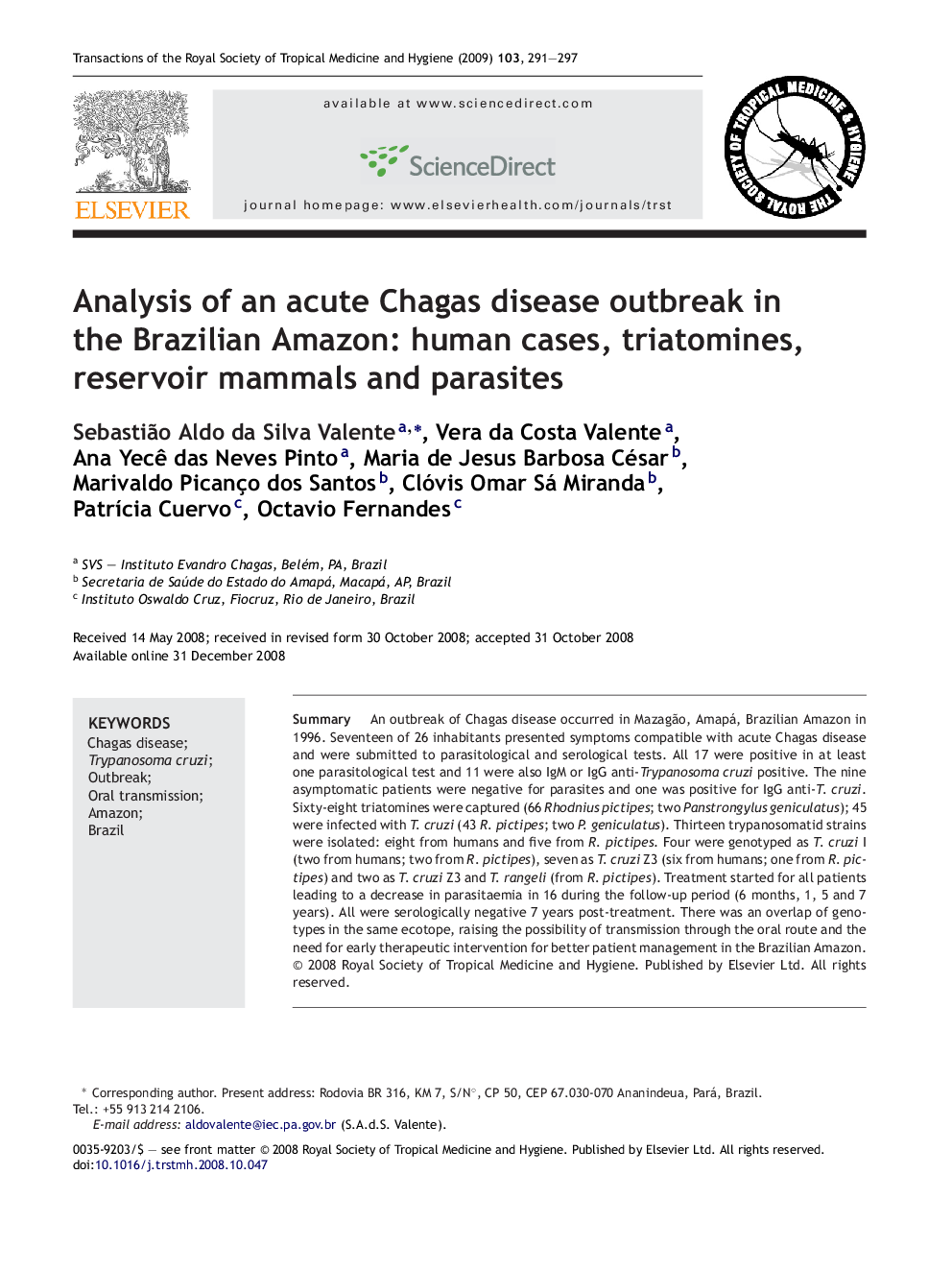| Article ID | Journal | Published Year | Pages | File Type |
|---|---|---|---|---|
| 3421257 | Transactions of the Royal Society of Tropical Medicine and Hygiene | 2009 | 7 Pages |
SummaryAn outbreak of Chagas disease occurred in Mazagão, Amapá, Brazilian Amazon in 1996. Seventeen of 26 inhabitants presented symptoms compatible with acute Chagas disease and were submitted to parasitological and serological tests. All 17 were positive in at least one parasitological test and 11 were also IgM or IgG anti-Trypanosoma cruzi positive. The nine asymptomatic patients were negative for parasites and one was positive for IgG anti-T. cruzi. Sixty-eight triatomines were captured (66 Rhodnius pictipes; two Panstrongylus geniculatus); 45 were infected with T. cruzi (43 R. pictipes; two P. geniculatus). Thirteen trypanosomatid strains were isolated: eight from humans and five from R. pictipes. Four were genotyped as T. cruzi I (two from humans; two from R. pictipes), seven as T. cruzi Z3 (six from humans; one from R. pictipes) and two as T. cruzi Z3 and T. rangeli (from R. pictipes). Treatment started for all patients leading to a decrease in parasitaemia in 16 during the follow-up period (6 months, 1, 5 and 7 years). All were serologically negative 7 years post-treatment. There was an overlap of genotypes in the same ecotope, raising the possibility of transmission through the oral route and the need for early therapeutic intervention for better patient management in the Brazilian Amazon.
